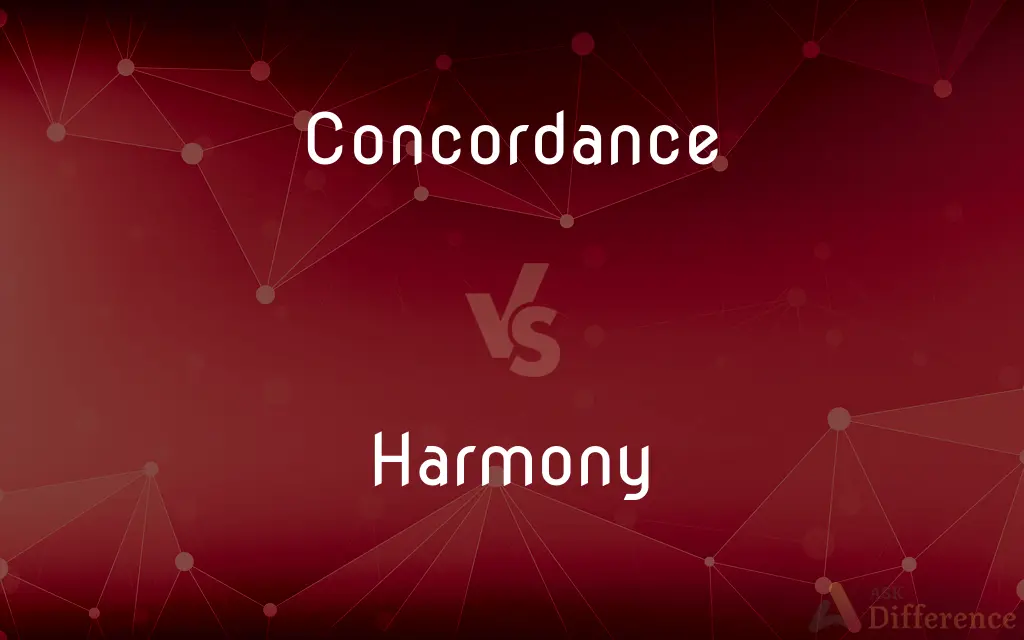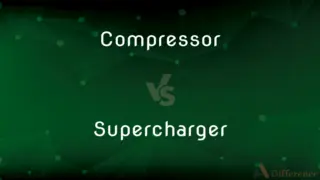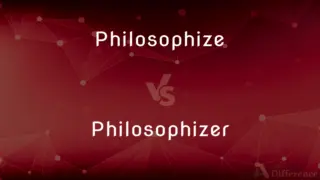Concordance vs. Harmony — What's the Difference?
By Maham Liaqat & Urooj Arif — Updated on April 17, 2024
Concordance involves agreement or consistency within a textual or data context, whereas harmony refers to a pleasing combination or arrangement, especially in music.

Difference Between Concordance and Harmony
Table of Contents
ADVERTISEMENT
Key Differences
Concordance is primarily used in contexts like literature or data analysis to denote agreement or correlation among elements or datasets. Whereas, harmony is often associated with music, describing the consonance and aesthetically pleasing arrangement of sounds.
In textual studies, a concordance is a list or index of words used in a book or a corpus, detailing their frequency and context. On the other hand, in music, harmony involves the combination of simultaneously sounded musical notes to produce chords and chord progressions that have a pleasing effect.
Concordance can also refer to agreements or treaties between countries, showing mutual understanding in political or social terms. Whereas, harmony extends beyond music to depict a state of peace and understanding in social settings.
The concept of concordance is used in genetics and medicine to describe the presence of the same trait in both members of a pair of twins or multiple data points that suggest a genetic link. On the other hand, harmony in a broader sense can refer to any situation in which different elements coexist without conflict, extending to ecological or personal relationships.
Concordance tools, such as software for analyzing texts or genetic data, provide specific insights into patterns and alignments. Whereas, achieving harmony, especially in music, requires an understanding of theory and artistic sensibility to blend notes creatively.
ADVERTISEMENT
Comparison Chart
Primary Context
Literature, data analysis
Music, social settings
Usage in Text
Index of words in documents, showing frequency and usage
N/A
Usage in Music
N/A
Combination of sounds to produce pleasing effects
Social Implication
Agreements or treaties, genetic similarities
Peaceful or cooperative coexistence
Tools and Methods
Concordance software for textual analysis or genetic studies
Musical theory, instruments, and compositions
Compare with Definitions
Concordance
Agreement or compatibility between opinions or actions.
The team displayed a concordance in their decision to move forward with the project.
Harmony
The combination of different musical notes played or sung simultaneously to produce a pleasing sound.
The choir achieved impressive harmony during their performance.
Concordance
An alphabetical list of the words present in a text, with references to their occurrences.
She used a concordance to find all instances of specific phrases in Shakespeare's plays.
Harmony
The state of being in agreement or concord.
The team worked in harmony to complete the project on time.
Concordance
The presence of a similar genetic trait in both members of a pair of twins.
The concordance of the disease in monozygotic twins led to further genetic research.
Harmony
A consistent, orderly, or pleasing arrangement of parts.
The garden was designed with an emphasis on harmony and tranquility.
Concordance
A treaty between countries establishing agreements on specific issues.
The two nations signed a concordance to enhance their economic relations.
Harmony
The interweaving of individual parts into a connected whole, especially in a narrative or a social context.
The novel's plot and characters were in perfect harmony.
Concordance
The state of being similar or identical in nature or quality.
The concordance between the two studies confirmed the initial hypothesis.
Harmony
A pleasing arrangement or proportion of parts that creates a coherent whole.
The artist's use of color created harmony in his paintings.
Concordance
Agreement; concord.
Harmony
Harmony, in music, is the process by which the composition of individual sounds, or superpositions of sounds, is analysed by hearing. Usually, this means simultaneously occurring frequencies, pitches (tones, notes), or chords.Harmony is a perceptual property of music, and along with melody, one of the building blocks of Western music.
Concordance
An alphabetical index of all the words in a text or corpus of texts, showing every contextual occurrence of a word
A concordance of Shakespeare's works.
Harmony
An orderly or pleasing combination of elements in a whole
Color harmony.
The order and harmony of the universe.
Concordance
(Genetics) The presence of a given trait in both members of a pair of twins.
Harmony
A relationship in which various components exist together without destroying one another
Different kinds of fish living in harmony.
Concordance
Agreement; accordance; consonance.
Harmony
A relationship characterized by a lack of conflict or by agreement, as of opinion or interest
Family harmony.
Concordance
Agreement of words with one another; concord.
Harmony
The study of the structure, progression, and relation of chords.
Concordance
(Bible) An alphabetical verbal index showing the places in the text of a book where each principal word may be found, with its immediate context in each place.
Harmony
Simultaneous combination of notes in a chord.
Concordance
(computational linguistics) A list of occurrences of a word or phrase from a corpus, with the immediate context.
Harmony
The structure of a work or passage as considered from the point of view of its chordal characteristics and relationships.
Concordance
Agreement; accordance.
Contrasts, and yet concordances.
Harmony
A combination of sounds considered pleasing to the ear.
Concordance
Concord; agreement.
Harmony
A musical line that harmonically complements the melody
You sing the lead part, and I'll sing the harmony.
Concordance
An alphabetical verbal index showing the places in the text of a book where each principal word may be found, with its immediate context in each place.
His knowledge of the Bible was such, that he might have been called a living concordance.
Harmony
A collation of parallel passages, especially from the Gospels, with a commentary demonstrating their consonance and explaining their discrepancies.
Concordance
A topical index or orderly analysis of the contents of a book.
Harmony
Agreement or accord.
Concordance
A harmonious state of things in general and of their properties (as of colors and sounds); congruity of parts with one another and with the whole
Harmony
A pleasing combination of elements, or arrangement of sounds.
Concordance
Agreement of opinions
Harmony
(music) The academic study of chords.
Concordance
An index of all main words in a book along with their immediate contexts
Harmony
(music) Two or more notes played simultaneously to produce a chord.
Harmony
(music) The relationship between two distinct musical pitches (musical pitches being frequencies of vibration which produce audible sound) played simultaneously.
Harmony
A literary work which brings together or arranges systematically parallel passages of historians respecting the same events, and shows their agreement or consistency.
A harmony of the Gospels
Harmony
The just adaptation of parts to each other, in any system or combination of things, or in things intended to form a connected whole; such an agreement between the different parts of a design or composition as to produce unity of effect; as, the harmony of the universe.
Harmony
Concord or agreement in facts, opinions, manners, interests, etc.; good correspondence; peace and friendship; as, good citizens live in harmony.
Harmony
A literary work which brings together or arranges systematically parallel passages of historians respecting the same events, and shows their agreement or consistency; as, a harmony of the Gospels.
Harmony
A succession of chords according to the rules of progression and modulation.
Ten thousand harps, that tunedAngelic harmonies.
Harmony
See Harmonic suture, under Harmonic.
Harmony
Compatibility in opinion and action
Harmony
The structure of music with respect to the composition and progression of chords
Harmony
A harmonious state of things in general and of their properties (as of colors and sounds); congruity of parts with one another and with the whole
Harmony
Agreement of opinions
Harmony
An agreeable sound property
Common Curiosities
What is an example of harmony in a social context?
In a social context, harmony refers to different community members living together without conflict.
How are concordance and harmony used differently in terms of peace?
Concordance refers to specific agreements or consistency in actions for peace, whereas harmony involves a broader sense of balance and coexistence.
What is concordance in a literary context?
Concordance in literature refers to an index that lists every word in a text and its frequency to help in study and analysis.
Can concordance be applied in scientific research?
Yes, concordance is crucial in fields like genetics for studying the agreement in traits among genetically related individuals.
What role does harmony play in a team setting?
In a team, harmony is crucial for fostering a cooperative and productive work environment.
Can concordance and harmony overlap in meaning?
While both can imply a form of agreement, concordance is more about exact correspondence or agreement, whereas harmony focuses on a balanced, pleasing arrangement.
What tools are used to create a concordance?
Tools for creating a concordance include specialized software that can analyze and list occurrences of words and phrases in texts.
Is a concordance necessary for all types of texts?
Not all texts require a concordance, but it is particularly useful in detailed textual analysis or academic studies.
What is the importance of harmony in ecological settings?
In ecology, harmony refers to the balance and sustainable coexistence between different species and their environment.
How does one measure concordance in statistics?
In statistics, concordance is measured by coefficients that indicate the degree of similarity between different sets of data.
Can concordance help in understanding historical documents?
Yes, concordance is a valuable tool in understanding and analyzing the frequency and usage of words in historical texts.
How does harmony enhance music performance?
Harmony enhances music by adding depth and complexity to melodies, enriching the listening experience.
How do you create harmony in design?
Harmony in design can be achieved by using elements that complement each other well, creating a visually pleasing ensemble.
What techniques ensure harmony in music composition?
Techniques for achieving harmony in music include understanding and applying the principles of chord progressions and voice leading.
What is a musical harmony?
Musical harmony involves the art of combining pitches into chords that produce a pleasing and cohesive sound.
Share Your Discovery

Previous Comparison
Compressor vs. Supercharger
Next Comparison
Philosophize vs. PhilosophizerAuthor Spotlight
Written by
Maham LiaqatCo-written by
Urooj ArifUrooj is a skilled content writer at Ask Difference, known for her exceptional ability to simplify complex topics into engaging and informative content. With a passion for research and a flair for clear, concise writing, she consistently delivers articles that resonate with our diverse audience.














































